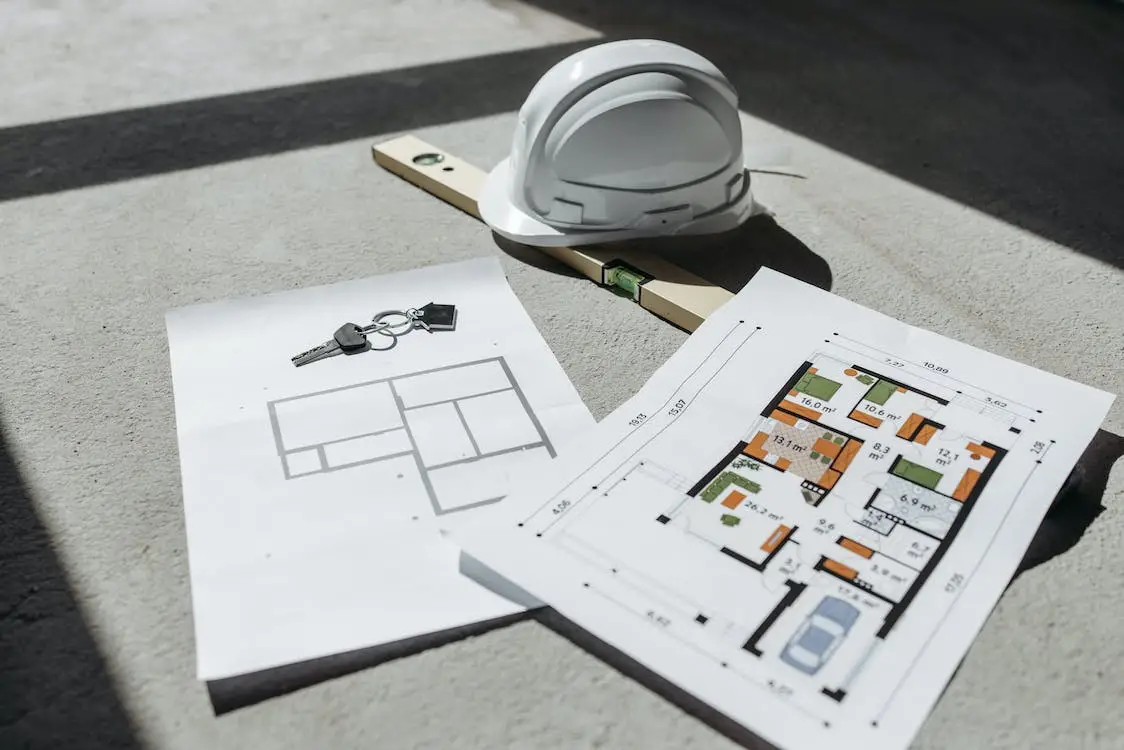Understanding the Basics: Essential Tips for Financing and Insuring Your Home
Home insurance is a must when you are a property owner. While you cannot use these policies for minor repairs or fixes, when something like significant storm damage or a fire comes along and damages or destroys your home, you will need help getting back on your feet. Even if you own a rental property, you will still need insurance to protect your investment.
Rental property insurance and home insurance are often sold with some basic common coverages built into the policies. Each insurance company offers slight differences in the coverage extensions they might offer, but otherwise, these kinds of insurance are pretty consistent from company to company. The more you know about the basics of these kinds of policies, the better off you will be when it comes to utilizing them to make a claim or when shopping around for the right insurance company.
Financing a Home and Insurance
Home insurance must be in place for any home or property you have a mortgage on. This is because the bank or mortgage company will want to protect their investment while you pay them back for the home you bought on credit. Once you have paid off your home, you could elect not to keep a policy to protect it from damages or acts of God, but you should not take this choice lightly. Repairing or replacing a home can be very costly, and you might not have the money in savings to do so, even if your home is paid off.
When you take out a mortgage, the mortgage company will inform you about the level of coverage that they expect to be in place to protect the property. Each loan institution might have different expectations for the coverage you have on your investment property or personal home. All of this information should be made clear when you are in the process of buying the home.

What Does Home Insurance Cover?
Home insurance is not meant to be used for minor repairs around the house. These policies are intended to help you build an entirely new home if your home burns to the ground or to repair significant damage to the home if a storm or another kind of accident causes significant damage. Some other coverage extensions should be a part of every homeowner’s policy:
- Damage or loss to your home
- Theft or damage of your personal belongings
- Damage or injury that happens to visitors to your home or property
- Accidental damage to another person’s property
- Personal property stolen from your vehicle
Home insurance comes in three basic types:
- Basic Coverage protects your home from fire or smoke damage, theft, and injury. All of the coverages will be explicitly listed within the policy.
- Broad Coverage includes extras like coverage for personal items and the home structure itself.
- Comprehensive Coverage tells you what is NOT covered under your policy. Everything else that is not named IS covered under this kind of policy.
You can also add endorsements to the policy to help you with other possible damage that might occur on your property. These appendices will add cost to your policy, but they can come in handy if you need specific protections not offered within the language of a standard policy.

What is Not Covered Under Home Insurance Policies
Whether taking out insurance on a rental or a personal home property, you cannot use the policy for certain purposes. These kinds of situations can vary, but the standard items that are not covered by your policy will be:
- Landslides
- Avalanches
- Earthquakes
- Tsunamis
Damage to water pipes is also often excluded, as is generalized flooding. Vacant properties that have not been occupied in more than 30 days might also not be eligible for claims coverage if damage happens while no one is in residence. You can often ask your insurance agent about the likelihood that a claim will be denied and get advice about whether or not to make one for the damages you have suffered.
Be aware that an adjuster will investigate all claims on your policy. This person will identify neglect and generalized lack of care that led to the damage you claimed. They will also verify if valuables lost or damaged inside your home during the incident can be covered. This investigation helps to prevent fraud, and it ensures that you are paid the correct amount for your loss based on industry standards and your estimated cost for repairs and damages.

Being Informed About Home Insurance is Key
Whether you have a mortgage on your personal property or a rental property, you need to be informed about the home insurance policy you must have to protect it. Home insurance can come in handy when there is significant damage to your property or if someone is injured on the property covered by the policy. Insurance protection can make it possible to repair or replace your home, and it can cover the costs of medical care and attention that a visitor might need after an injury.
The more you know about home insurance and how it can protect your property, the better off you will be when you shop for the right policy for your needs. You will also be much more likely to understand when it is appropriate to claim this policy. Being versed in the basics of home insurance is always ideal and can make it much easier for you to get the right policy for your specific needs.
Understanding the Basics: Essential Tips for Financing and Insuring Your Home
Home insurance is a must when you are a property owner. While you cannot use these policies for minor repairs or fixes, when something like significant storm damage or a fire comes along and damages or destroys your home, you will need help getting back on your feet. Even if you own a rental property, you will still need insurance to protect your investment.
Rental property insurance and home insurance are often sold with some basic common coverages built into the policies. Each insurance company offers slight differences in the coverage extensions they might offer, but otherwise, these kinds of insurance are pretty consistent from company to company. The more you know about the basics of these kinds of policies, the better off you will be when it comes to utilizing them to make a claim or when shopping around for the right insurance company.
Financing a Home and Insurance
Home insurance must be in place for any home or property you have a mortgage on. This is because the bank or mortgage company will want to protect their investment while you pay them back for the home you bought on credit. Once you have paid off your home, you could elect not to keep a policy to protect it from damages or acts of God, but you should not take this choice lightly. Repairing or replacing a home can be very costly, and you might not have the money in savings to do so, even if your home is paid off.
When you take out a mortgage, the mortgage company will inform you about the level of coverage that they expect to be in place to protect the property. Each loan institution might have different expectations for the coverage you have on your investment property or personal home. All of this information should be made clear when you are in the process of buying the home.

What Does Home Insurance Cover?
Home insurance is not meant to be used for minor repairs around the house. These policies are intended to help you build an entirely new home if your home burns to the ground or to repair significant damage to the home if a storm or another kind of accident causes significant damage. Some other coverage extensions should be a part of every homeowner’s policy:
- Damage or loss to your home
- Theft or damage of your personal belongings
- Damage or injury that happens to visitors to your home or property
- Accidental damage to another person’s property
- Personal property stolen from your vehicle
Home insurance comes in three basic types:
- Basic Coverage protects your home from fire or smoke damage, theft, and injury. All of the coverages will be explicitly listed within the policy.
- Broad Coverage includes extras like coverage for personal items and the home structure itself.
- Comprehensive Coverage tells you what is NOT covered under your policy. Everything else that is not named IS covered under this kind of policy.
You can also add endorsements to the policy to help you with other possible damage that might occur on your property. These appendices will add cost to your policy, but they can come in handy if you need specific protections not offered within the language of a standard policy.

What is Not Covered Under Home Insurance Policies
Whether taking out insurance on a rental or a personal home property, you cannot use the policy for certain purposes. These kinds of situations can vary, but the standard items that are not covered by your policy will be:
- Landslides
- Avalanches
- Earthquakes
- Tsunamis
Damage to water pipes is also often excluded, as is generalized flooding. Vacant properties that have not been occupied in more than 30 days might also not be eligible for claims coverage if damage happens while no one is in residence. You can often ask your insurance agent about the likelihood that a claim will be denied and get advice about whether or not to make one for the damages you have suffered.
Be aware that an adjuster will investigate all claims on your policy. This person will identify neglect and generalized lack of care that led to the damage you claimed. They will also verify if valuables lost or damaged inside your home during the incident can be covered. This investigation helps to prevent fraud, and it ensures that you are paid the correct amount for your loss based on industry standards and your estimated cost for repairs and damages.

Being Informed About Home Insurance is Key
Whether you have a mortgage on your personal property or a rental property, you need to be informed about the home insurance policy you must have to protect it. Home insurance can come in handy when there is significant damage to your property or if someone is injured on the property covered by the policy. Insurance protection can make it possible to repair or replace your home, and it can cover the costs of medical care and attention that a visitor might need after an injury.
The more you know about home insurance and how it can protect your property, the better off you will be when you shop for the right policy for your needs. You will also be much more likely to understand when it is appropriate to claim this policy. Being versed in the basics of home insurance is always ideal and can make it much easier for you to get the right policy for your specific needs.




